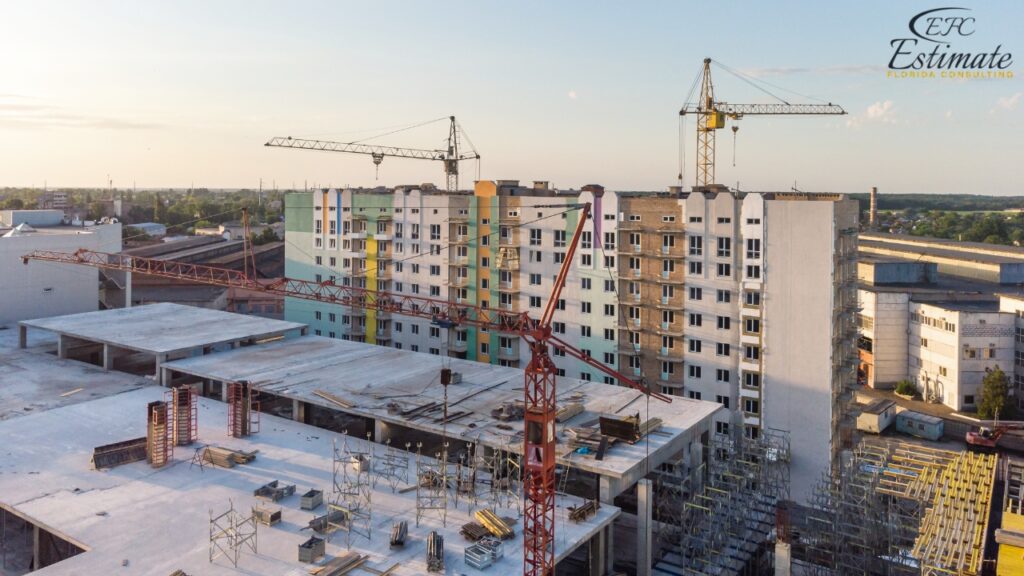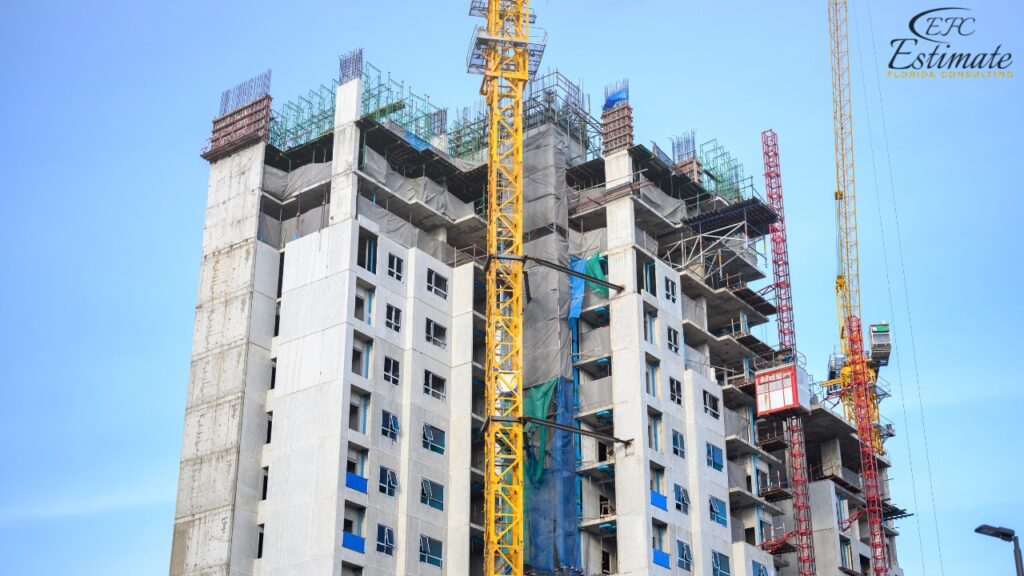Commercial Construction Budget Planning Tips
Planning a commercial construction project can be an exciting but daunting task. One of the most crucial aspects of ensuring your project runs smoothly is effective budget planning. Here are some practical tips to help you get started:
1. Define Your Project Scope
Before anything else, make sure you have a clear understanding of what your project entails. This means detailing every aspect of the project, from the overall objectives to specific deliverables and technical specifications.
Having a comprehensive project scope helps prevent scope creep, where additional tasks and requirements start to emerge, inflating your costs and extending your timeline. Discussing these details with your stakeholders—including clients, architects, and contractors—helps to create a shared vision and prevents misunderstandings later on. This clarity will serve as the foundation for your budget, helping to keep everything on track and within scope. Regularly revisit the scope to ensure it remains aligned with the project goals as it progresses.
2. Conduct a Feasibility Study
Before you dive into the nitty-gritty of budgeting, take some time to conduct a feasibility study. This involves looking at things like the location, market demand, environmental impact, zoning regulations, and potential challenges you might face. Understanding these factors early on can help you make more informed decisions and avoid costly surprises down the line. A feasibility study often includes a SWOT analysis (Strengths, Weaknesses, Opportunities, and Threats), which provides a holistic view of the project’s potential. Plus, a good feasibility study can also help you identify financing options and potential returns on investment. This upfront investment in research can save significant time and money by ensuring the project’s viability from the outset.
3. Utilize Accurate Estimating
Accurate estimating is essential. You don’t want to underestimate costs and end up short on funds halfway through the project. Hiring experienced estimators or using advanced estimating software can make a big difference. These tools and professionals can provide detailed breakdowns of costs for materials, labor, permits, equipment, and unforeseen expenses. It’s also beneficial to reference historical data from similar projects to enhance the accuracy of your estimates. They can help you get a detailed breakdown of costs for materials, labor, permits, and other factors. At Estimate Florida Consulting, we specialize in providing accurate estimates based on your specific zip code, giving you the best information to manage your project effectively. Our localized knowledge ensures that your budget reflects realistic costs and helps in better financial planning.
4. Include Contingency Funds
Unexpected costs are almost a given in any construction project. That’s why it’s wise to set aside a contingency fund—typically 5% to 10% of your total budget. This buffer can cover unexpected expenses like design changes, unforeseen site conditions, or price increases in materials. Contingency funds act as a financial safety net, allowing you to address issues without derailing the project. Regularly review and adjust your contingency fund as the project progresses to ensure it remains sufficient. Keeping a contingency fund also gives stakeholders confidence that the project can handle surprises without compromising on quality or timelines.
5. Break Down Costs by Category
To keep your budget organized and transparent, break down your costs into specific categories like materials, labor, permits, and equipment. This way, you can easily track where your money is going and make adjustments if necessary. Creating a detailed cost breakdown structure (CBS) ensures that every aspect of the project is accounted for. This structured approach helps you to identify areas where you might be able to save and allows for more precise monitoring of spending throughout the project. A detailed cost breakdown can also facilitate better negotiations with suppliers and subcontractors, as you can clearly see where the bulk of your expenditures lie.

6. Monitor Market Trends
The construction industry is influenced by market trends that can affect costs. Keep an eye on factors like material prices, labor rates, and supply chain dynamics, as they can fluctuate and impact your budget. Staying informed through industry reports, economic forecasts, and supplier insights allows you to make smarter purchasing decisions and negotiate better deals, ultimately saving you money. Understanding market trends also helps in timing your purchases strategically; for instance, buying materials in bulk during off-peak seasons can lead to substantial savings. Regularly updating your budget to reflect current market conditions ensures that it remains realistic and achievable.
Commercial Construction Videos
Commercial Construction
Factory Construction
Work Shop Construction
7. Engage All Stakeholders
Involving all stakeholders in the budget planning process ensures that everyone is on the same page and working towards the same goals. Regular communication with architects, contractors, and clients can help identify potential issues early and keep the project aligned with its budget. This collaborative approach fosters transparency and accountability, which are key to a successful project. Stakeholder engagement also promotes a sense of ownership and commitment to the project’s success, reducing the likelihood of conflicts and misunderstandings. By holding regular meetings and updates, you can ensure that all parties are informed and any concerns are addressed promptly.
8. Review and Adjust Regularly
Budget planning isn’t a one-and-done task; it requires ongoing monitoring and adjustments. Regularly review your budget to compare actual spending against your estimates. Analyze any discrepancies to understand why they occurred and make necessary adjustments. This proactive approach helps keep the project on track and within budget. Implementing a robust financial reporting system can facilitate these regular reviews, providing timely insights into budget performance. Being adaptable and responsive to changes as they arise helps mitigate risks and ensures that the project progresses smoothly. Regular reviews also provide an opportunity to celebrate milestones and achievements, keeping the team motivated.
9. Consider Sustainable Practices
Incorporating sustainable practices into your project can lead to long-term savings and increased property value. While green materials and energy-efficient systems might have higher upfront costs, they often result in reduced operational costs over time. Evaluate options like solar panels, energy-efficient HVAC systems, and sustainable building materials that align with your project goals. Look into potential tax incentives or rebates for sustainable building practices to help offset initial expenses. Prioritizing sustainability not only enhances your project’s marketability but also contributes to environmental conservation.

Moreover, sustainable buildings often attract higher rental and sale prices, providing a good return on investment.
10. Utilize Technology for Budget Management
Leverage technology to streamline your budget management. Project management software can help you track expenses, monitor budgets, and facilitate communication among team members. These tools provide real-time insights into budget performance, enabling you to make timely adjustments and proactive decisions. Construction management platforms can offer features such as budget tracking, document sharing, and collaboration tools, enhancing overall project efficiency. Embracing technology can significantly improve your project’s efficiency and success. Additionally, technology can assist in forecasting future costs and identifying potential financial risks, allowing for better planning and resource allocation.
Download Template For Construction Project Breakdown
- Materials list updated to the zip code
- Fast delivery
- Data base of general contractors and sub-contractors
- Local estimators

Conclusion
Effective budget planning is crucial for the success of any commercial construction project. By defining your project scope, using accurate estimates, and involving all stakeholders, you can create a robust budget that minimizes risks and maximizes outcomes.
If you need expert assistance with estimating services tailored to your commercial construction project, Estimate Florida Consulting is here to help. We provide accurate estimates based on your specific zip code, ensuring you have the best information to manage your project effectively. Our dedicated team is ready to support you at every step, providing insights and expertise to achieve your construction goals. Contact us today to learn more about how we can assist you!
FAQs
Defining the project scope is crucial as it details every aspect of the project, preventing scope creep and unexpected costs. It ensures all stakeholders have a shared vision and helps create a solid foundation for your budget. Regularly revisiting the scope keeps the project aligned with its goals and within budget.
A feasibility study assesses the viability of your project by examining factors like location, market demand, environmental impact, and zoning regulations. It helps identify potential challenges and financing options, providing a holistic view of the project’s potential. Conducting a feasibility study can save time and money by ensuring the project is viable from the start.
Accurate estimating helps prevent budget shortfalls by providing detailed cost breakdowns for materials, labor, permits, and unforeseen expenses. Hiring experienced estimators or using advanced estimating software ensures realistic budget planning. At Estimate Florida Consulting, we provide estimates based on your zip code for precise financial planning.
Contingency funds act as a financial safety net, typically 5% to 10% of the total budget, to cover unexpected costs like design changes or unforeseen site conditions. They help address issues without derailing the project and provide stakeholders confidence in handling surprises.
Breaking down costs into categories like materials, labor, permits, and equipment helps keep your budget organized and transparent. It allows for easier tracking and adjustments and identifies areas where savings can be made. A detailed cost breakdown can also improve negotiations with suppliers and subcontractors.
Monitoring market trends helps you stay informed about factors like material prices, labor rates, and supply chain dynamics that can affect costs. Understanding these trends enables smarter purchasing decisions and better deals, ultimately saving money. Regularly updating your budget to reflect market conditions ensures it remains realistic and achievable.
Engaging stakeholders in the budget planning process ensures alignment on goals and fosters transparency and accountability. Regular communication with architects, contractors, and clients helps identify potential issues early and keeps the project within budget. Collaborative planning promotes ownership and commitment to project success.
Regular budget reviews allow you to compare actual spending against estimates, analyze discrepancies, and make necessary adjustments. This proactive approach keeps the project on track and within budget, mitigating risks and ensuring smooth progress. Implementing a financial reporting system facilitates timely insights into budget performance.
Sustainable practices can lead to long-term savings and increased property value. While green materials and energy-efficient systems may have higher upfront costs, they reduce operational costs over time. Evaluate options like solar panels and sustainable building materials, and consider tax incentives or rebates to offset initial expenses.
Google Reviews



Process To Get Commercial Construction Budget Planning Tips Estimate Report
Here I am going to share some steps to get commercial construction budget planning tips estimate report.
-
You need to send your plan to us.
You can send us your plan on info@estimatorflorida.com
-
You receive a quote for your project.
Before starting your project, we send you a quote for your service. That quote will have detailed information about your project. Here you will get information about the size, difficulty, complexity and bid date when determining pricing.
-
Get Estimate Report
Our team will takeoff and estimate your project. When we deliver you’ll receive a PDF and an Excel file of your estimate. We can also offer construction lead generation services for the jobs you’d like to pursue further.

